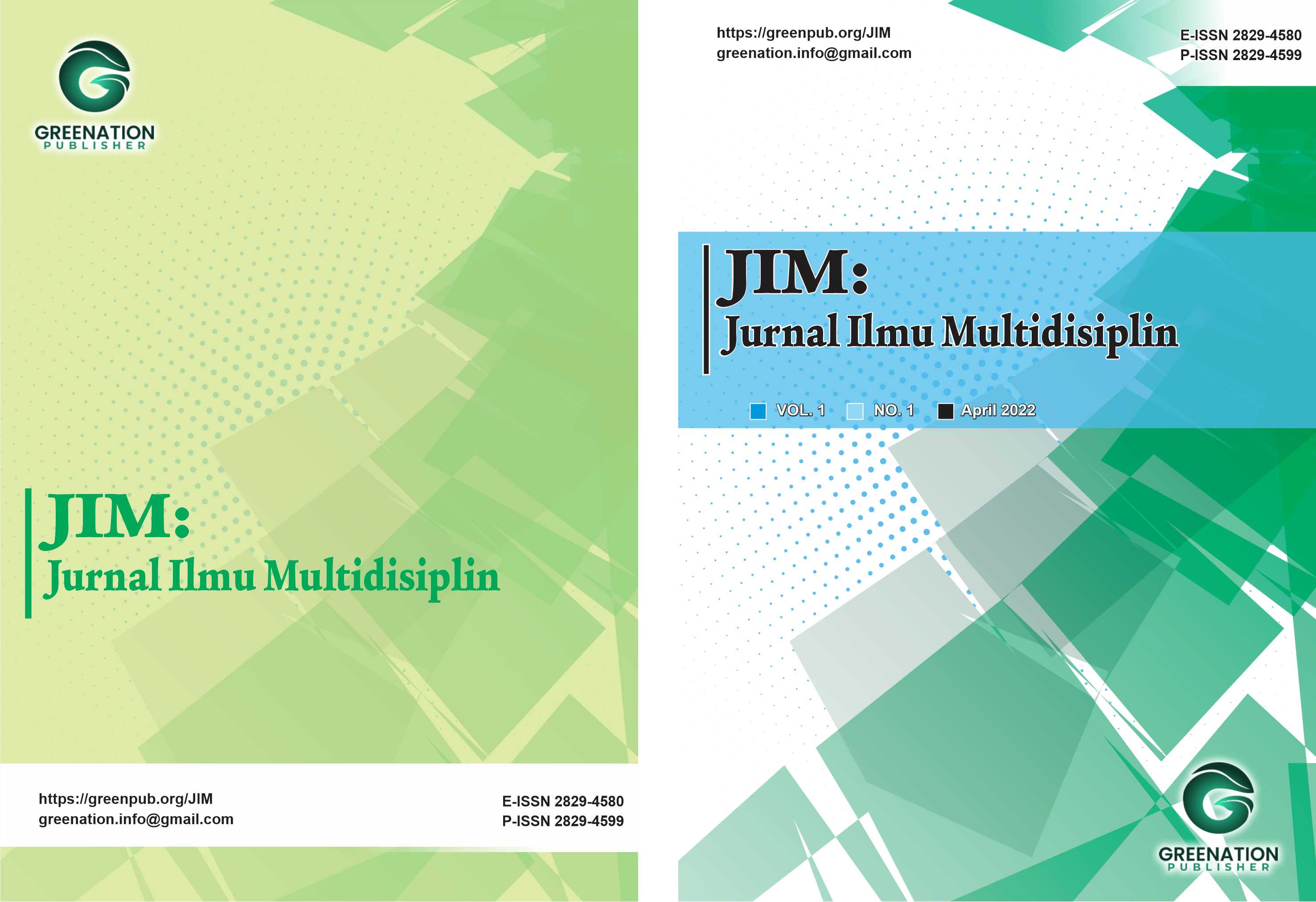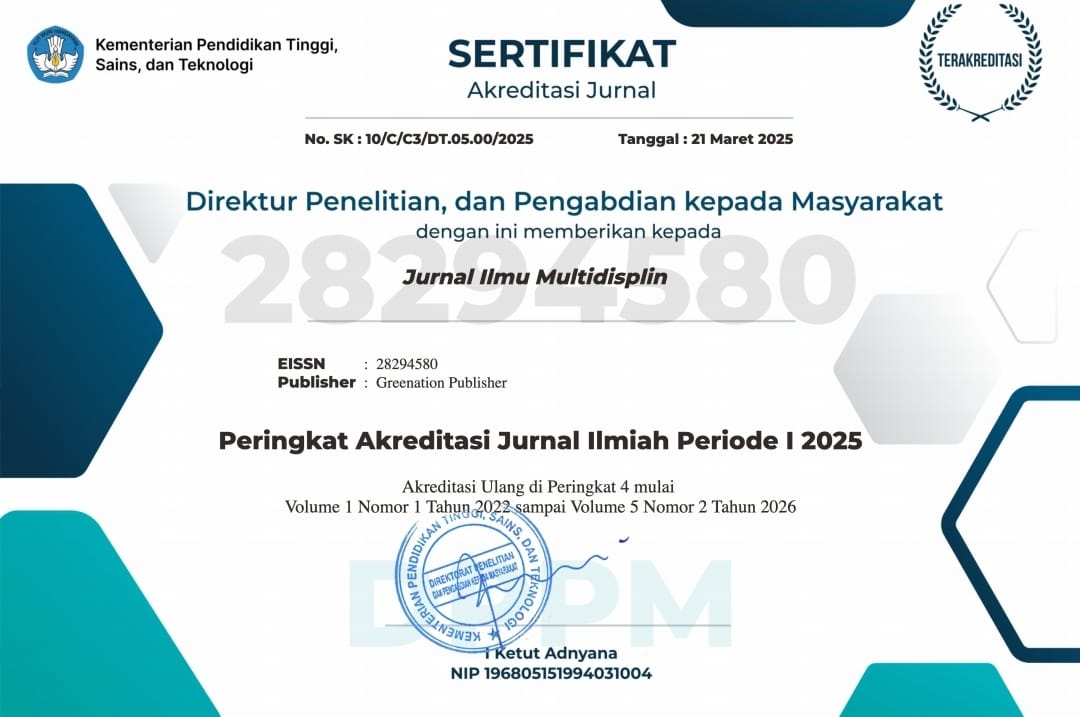Menjaga Loyalitas Guru: Peran Budaya Sekolah dan Religiusitas dalam Retensi Tenaga Pendidik
DOI:
https://doi.org/10.38035/jim.v4i1.892Keywords:
retensi guru, budaya organisasi, religiusitas, kepuasan kerja, komitmen kerjaAbstract
Retensi guru adalah masalah kritis di sektor pendidikan, terkait erat dengan dinamika organisasi dan nilai-nilai individu. Tinjauan ini mengeksplorasi peran budaya organisasi sekolah dan religiusitas guru dalam meningkatkan loyalitas guru dan mengurangi niat pergantian. Temuan empiris menunjukkan bahwa budaya organisasi yang kuat dan positif secara signifikan menurunkan niat untuk pergi, meningkatkan kepuasan kerja, dan memperkuat komitmen kerja. Demikian pula, tingkat religiusitas yang tinggi di antara guru berkontribusi pada kepuasan kerja yang lebih besar, motivasi intrinsik, dan perilaku yang bertanggung jawab dengan membingkai profesi guru sebagai tugas moral dan spiritual. Kepuasan kerja diidentifikasi sebagai faktor mediasi utama yang menghubungkan budaya organisasi dan religiusitas dengan retensi guru. Tinjauan ini menyoroti pentingnya strategis menumbuhkan budaya sekolah berbasis nilai dan mengintegrasikan dimensi spiritual untuk mempertahankan keterlibatan guru dan komitmen jangka panjang terhadap profesi.
References
Almeyda, M., & Gulo, Y. (2022). Pengaruh Kompensasi, Lingkungan Kerja dan Budaya Organisasi terhadap Kepuasan Kerja Karyawan. E-Jurnal Manajemen Trisakti School of Management (TSM), 2(4), 151–160. https://doi.org/10.34208/ejmtsm.v2i4.1773
Bulawat, A. C. (2020). Teachers ’ turnover among public schools?: Basis for teachers. International Journal of Scientific Research and Engineering Development, 3(2), 889–896. www.ijsred.com
Darmawan, D. (2024). Level Of Job Satisfaction And Organizational Culture?: The Key To Teacher Commitment At The Al Jahidiyah Foundation , Geger , Bangkalan. 1(1), 320–336.
Fahruly, I., Sudjadi, A., & Laksana, R. D. (2023). The Role Of Religiosity And Spirituality On The Intention To Stay In Employees ( Case Study At The Al-Irsyad Social Foundation Cilacap ). International Sustainable Competitiveness Advantage, 2010, 1–10.
Faletehan, A. F., & Zuhri, S. (2024). Faktor-faktor yang membahagiakan relawan muslim di organisasi nirlaba berbasis Islam. Journal of Islamic Management, 4(2), 113–131. https://doi.org/https://doi.org/10.15642/jim.v4i2.1655
Giovanni, F. N., Survival, S., & Wulandari, W. (2023). Peran Komitmen Organisasional Sebagai Variabel Mediasi: Organizational Citizenship Behavior Dan Kompetensi Terhadap Retensi Guru Sman 1 Lawang. Jurnal Economina, 2(2), 380–396. https://doi.org/10.55681/economina.v2i2.289
Hutagalung, D., & Asbari, M. (2020). Peran Religiusitas, Kepemimpinan, Organizational Citizenship Behavior terhadap Kinerja Guru. Journal of Education, Psychology and Counseling, 2(1), 311–326. https://ummaspul.e-journal.id/edupsycouns/article/view/483
Izzati, U. A. (2024). Beyond the Classroom?: Exploring Teacher Loyalty in Vocational Education. Journal of Educational, Health and Community Psychology, 13(4), 1635–1664.
Juhdi, N., Hashim, J., & Rahman, R. A. (2019). Job embeddedness and retention: A study among teachers in private islamic schools in Malaysia. Malaysian Journal of Consumer and Family Economics, 21(S1), 125–138.
Khairunnisa, K., Batubara, P. F., Hafizha, A., & Mukhlasin, A. (2024). Budaya Organisasi dan Faktor-Faktor yang Membentuknya di Sekolah. Jurnal Bima: Pusat Publikasi Ilmu Pendidikan Bahasa Dan Sastra, 2(3), 267–274.
Laike, F. R., & Wibowo, D. H. (2024). Religiusitas Dengan Motivasi Kerja Guru Di Sekolah Dasar Kabupaten Halmahera Barat Oleh. Journal of Innovation Research and Knowledge, 4(2), 535–546.
Nelson, B. S. (2020). Case Study of School Practices, Policies, and Culture That Foster Small, Faith-Based School Teacher Retention. In PhD Thesis. Concordia University (Oregon).
Nguyen, C., & Duong, A. (2020). The Impact of Training and Development, Job Satisfaction and Job Performance on Young Employee Retention. International Journal of Future Generation Communication and Networking, 13(3), 373–386. https://doi.org/10.2139/ssrn.3930645
Pokhrel, S. (2024). School Culture And Teacher Retention. In Doctoral dissertation, Indiana State University.
Sandia, D., Tahrir, & Supriyatin, T. (2024). Dukungan Sosial Dan Religiusitas Terhadap Stres Kerja Pada Guru Sekolah. Ar-Raniry International Conference on Psychology, 1(1).
Saragih, I. S., & Suhendro, D. (2020). Pengaruh iklim organisasi sekolah, budaya kerja guru, dan kepuasan kerja terhadap komitmen kerja guru. Jurnal Akuntabilitas Manajemen Pendidikan, 8(1), 44–52. https://doi.org/10.21831/jamp.v8i1.29654
Sari, L. P., & Helmy, I. (2020). Pengaruh Person-Organization Fit, Job Embeddedness dan Religiusitas Terhadap Komitmen Organisasional dengan Kepuasan Kerja sebagai Variabel Intervening. Jurnal Ilmiah Mahasiswa Manajemen, Bisnis Dan Akuntansi (JIMMBA), 2(2), 197–213. https://doi.org/10.32639/jimmba.v2i2.463
Stiawati, T. I. M. (2022). Pengaruh budaya sekolah terhadap motivasi kerja guru di MAN 1 Kota Cilegon. Jurnal Pendiidkan Dan Konseling, 4, 952–959.
Susandi, S. (2022). Retensi Kerja Guru dan Faktor-Faktor yang Memengaruhinya. Eligible?: Journal of Social Sciences, 1(2), 87–104. https://doi.org/10.53276/eligible.v1i2.22
Wahyuni, S., Hartinah, S., & Prihatin, Y. (2024). Pengaruh Kepemimpinan, Motivasi, Beban Kerja, Kompetensi dan Religiusitas terhadap Kinerja Guru Sekolah Dasar. Journal of Education Research, 5(3), 4060–4072. https://doi.org/10.37985/jer.v5i3.1544
Wardani, C. R. K., & Madani, W. (2025). Peran Strategis Guru Dalammembangun Kurikulum Responsif Untuk Memenuhi Kebutuhan Siswa. Cendekia Pendidikan, 12(9). https://doi.org/10.9644/sindoro.v3i9.267
Zamzamy, A. S., Kresna Setiadi, I., & Nawir, J. (2021). Pengaruh Employee Engagement, Budaya Organisasi, Dan Work Life Balance Terhadap Turnover Intention Guru Secondary Jakarta Islamic School. Business Management, Economic, and Accounting National Seminar, 2.
Zavelevsky, E., Shapira-Lishchinsky, O., Benoliel, P., Klein, J., & Schechter, C. (2022). Ecological School Culture for Novice Teachers’ Retention: Principals’ Perceptions. Leadership and Policy in Schools, 21(4), 922–937. https://doi.org/10.1080/15700763.2021.1879170
Downloads
Published
How to Cite
Issue
Section
License
Copyright (c) 2025 Andika Setyobudi, Nunuk Hariyati, Yatim Riyanto

This work is licensed under a Creative Commons Attribution 4.0 International License.
You are free to:
- Share— copy and redistribute the material in any medium or format
- Adapt— remix, transform, and build upon the material for any purpose, even commercially.
The licensor cannot revoke these freedoms as long as you follow the license terms.
Under the following terms:
- Attribution— You must give appropriate credit, provide a link to the license, and indicate if changes were made. You may do so in any reasonable manner, but not in any way that suggests the licensor endorses you or your use.
- No additional restrictions— You may not apply legal terms or technological measures that legally restrict others from doing anything the license permits.
Notices:
- You do not have to comply with the license for elements of the material in the public domain or where your use is permitted by an applicable exception or limitation.
- No warranties are given. The license may not give you all of the permissions necessary for your intended use. For example, other rights such as publicity, privacy, or moral rightsmay limit how you use the material.



























